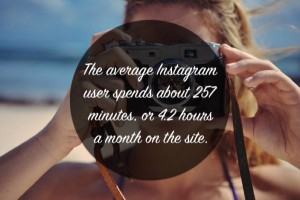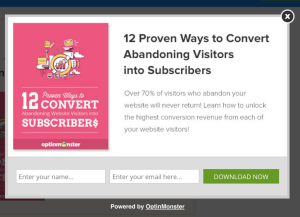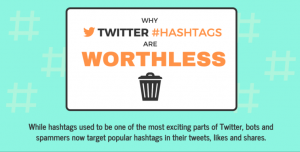We can easily learn a lot about each other from social media these days — almost too much. It doesn’t take much to look someone up on Google, Facebook, LinkedIn, or Twitter before a meeting or sending an email. You can learn where someone is from, what he or she likes, information about their family, education, social life…the list goes on.
But, what is appropriate to mention in your email? You want to clue your contact in that you are interested in their life, but not that you crept a lot through their old photos, and know more about their life then you originally intended.
If you are looking to stand out in your industry, trying to be different won’t get you as far as it used to, these days being authentic will bring recognition and loyal customers.
When writing an email to a client, authenticity is important, and avoiding revealing your stalker-like tendencies is even more important. To show interest in the contact, you should include a conversation piece on an aspect of their life. For example, if they live in Cleveland an appropriate comment would be to mention how well the Cavs are doing.
Depending on the level of how well you know someone, topics can be more personal. For instance, if you know someone well, asking how his or her family is doing is a nice gesture. But if they are someone you only met once, then less personal details are more appropriate, such as things you can learn with a quick look on LinkedIn.
Here Are Our 9 Dos And Don’ts For Writing An Authentic Email:
1. Don’t: Try to make a blanketed contact message.
Do: Focus on the individual.
By making an effort and being authentic with your clients, you can differentiate yourself from other companies. With social media constantly giving you updates on acquaintances, creating a genuine relationship outside of social media is really important.
No matter how much you “like” the posts on someone’s page, your relationship with them can still remain impersonal and stagnant. Your professional relationship should offer something they desire and makes them feel comfortable. If you use a template to structure your emails, adding a personal touch to a message adds value for the customer.
2. Don’t: Send an email commenting on something their child did.
Do: Send a congratulatory email about a new job.
Especially if you are not friends on Facebook. That is intrusive. Most people are very protective of their families and unwelcomed attention can come off as a very intrusive gesture.
When researching someone new, everyone has ended up on another person’s page and explored their interests and pictures. Despite this being one of the major points of social media, acknowledging excessive social media creeping is not a savory first conversation.
It’s okay to be personal! If they had a major life event then feel free to congratulate them on it. Great services such as Newsle can send you updates when someone in your network is in the news. Mentioning that their new job you saw on LinkedIn and asking questions about it is a great strategy great for connecting and establishing a way to potentially work together.
People love to talk about themselves and share their experiences. Talking about ourselves stimulates the same area of the brain as food and money. So to establish a relationship with your contact, ask them questions.

3. Don’t: Add your new contact on Facebook right away.
Do: Reach out via email or LinkedIn.
Professional relationships can be awkward on this social media platform. Adding someone on Facebook is a more in your face relationship with constant updates on their life. As you develop a further relationship, it is perfectly acceptable to add them. Just not at first.
Email and LinkedIn are a lot less committal than Facebook. Where as email gives you a steady flow of contact, Facebook can overload you with life updates, it is more of a long-term deal. This can be very creepy especially if you don’t know your contact well. LinkedIn gives professional life updates which an appropriate way to connect after an initial meeting.
4. Don’t: Lie about your product/services.
Do: Give a genuine answer about your product.
Although you might not be able to answer with what a customer wants to hear, telling them the truth is more important than trying to please them. No matter what platform you use to contact your clients, you always want to give them a truthful picture of your product.
Being honest adds to your authenticity, and your customers will enjoy your helpful and supportive nature. Remember to always keep your contact’s feelings in mind when describing your product. To maintain integrity, protect private information and clearly spell out what value your product provides.
5. Don’t: Pressure them into a response.
Do: Send follow-up messages to check on them.
The aim is to build an authentic relationship, and although communication is a major part of that, making a client feel pressured into emailing you back will not help. Most people’s inboxes are crammed with a constant influx of messages; so don’t be too concerned when your contact does not respond immediately. Once they respond to you reply respectably, effectively, and promptly.
6. Don’t: Tell your clients all of your flaws and not so cute quirks.
Do: Add a fun, relatable detail about yourself in your bio or email.
An example of what not to say is that you are always late. Your client wants to know relevant or interesting facts about you. They should not have a reason to go into a meeting or a deal with you already concerned with your abilities.
A good example is that you like to cook or are an avid coffee drinker. Making yourself vulnerable by offering personal details, you prove you aren’t a robotic businessperson. Being honest makes your clients more willing to open up to you.

Although it is nice to share some information with people, you don’t necessarily need to share everything with everyone. Depending on the person, you can share different amounts of information and still be authentic.
7. Don’t: Share pointless information.
Do: Share valuable content.
Your professional contacts don’t need to hear about what you had for lunch everyday (unless you are a food blogger).
Sharing great content increases the value of your product. You can build up your reputation by sharing important information, but worthless information can have the opposite effect.
Content such as websites, infographics, eBooks, whitepapers, company created content, and other relevant information are great pieces to share. According to Holly Hamann on LinkedIn, people are looking for “value, kindness, entertainment, and inspiration” from your content to prove your authenticity. Good content can an audience who genuinely cares about your product.
8. Don’t: Be overly flattering.
Do: Mention groups and interests they have with genuine compliments.
If you do not know the person well then excessive complements can come off as creepy and stalker-like.
After reading through their LinkedIn profile, look at groups they are in and what they have commented on. It shows a more genuine interest. According to Hubspot, this is “a lot less intrusive and gives the conversation an easier focal point.”
Everyone already knows you Googled them or looked them up on LinkedIn, so tell them where you found their information. Being honest makes the whole process less creepy and more personal.
9. Don’t: Come off as an expert/know it all.
Do: Let your contact shine with questions.
By letting your contact feel like they are in control and the one who knows the most information, you make them feel important. You can also use this as a way to start a larger conversation especially if you ask more than just surface level questions. By starting a dialogue on something they are passionate about, you will find they are more willing to listen to you when you change the tone of conversation to focus more on your original intent.
An authentic relationship is a lasting relationship. If you can create real value for your customer and be genuine with them then, you can make a customer last for years rather than just for a season. Adding authenticity in your communication increases the value of your company by making it about more than just a nice product or solid service, authenticity sets you apart.
With the virtual world controlling our lives through social media, people crave honest and genuine interactions. To be competitive with other similar products a company needs to offer the customer what they want. Authenticity has the power to make a company inspire and prosper. It makes you influential, relatable, valuable, gives your product substance, and turns your customers into advocates.

(269)
Report Post








